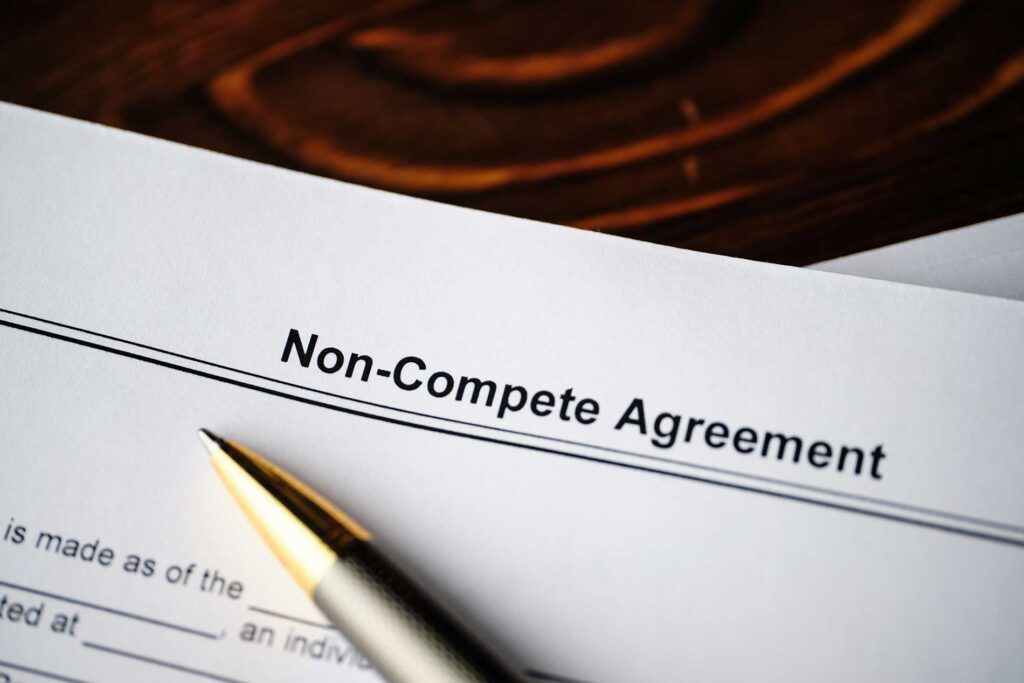
When two or more parties enter into a contract, there is an expectation that the agreement will be followed. Unfortunately, this doesn’t always happen. Disputes can arise over the meaning of a contract, performance of the contract, and even termination of the contract. If you are involved in a dispute with another party over a valid contract, it is important to seek legal help. A contract dispute lawyer can help you understand your rights and options under the law. In this blog post, we will discuss common examples of contract disputes, ways to avoid them, and how to resolve them if they do occur.
Common Examples of Contract Disputes
There are two primary reasons why one party in a contract may dispute the actions of the other side; these can be broken down into minor breaches and material breaches. Sometimes called a partial breach, a minor breach occurs when the wrongful party’s actions do not affect the whole outcome of the contract; however, these breaches may still win the other party damages in a court of law. Material breaches or total breaches occur when a contract is unequivocally broken and rendered moot to the point that no terms have been completely unsatisfied. During a material or total breach, the dissatisfied party may also sue the wrongful side for damages.
Within these two branches of contract disputes, there are several primary factors that may cause a contract to be disputed. Here are some of the most common types of contract disputes:
· Unclear definition of a technical term leading to confusion
· Mistakes within the contract
· Unpaid bills or invoices
· Defective products or services
· Contract termination disputes
· Fraud and coercion
· Drafting and reviewing contracts
How to Avoid a Contract Dispute
Especially when valuable assets are involved, contract disputes can get messy fast. If possible, it is best to avoid a contract dispute whenever possible by writing all contract terms down clearly and extensively before seeking a signature. Here are some other ways to avoid contract disputes:
· Write exceptionally clear contract goals
· Read through the entire contract each time it is updated for updated terms and conditions
· Clarify industry jargon
· Seek legal counsel from a contract attorney from the outset so all parties are set up for success
The best way to avoid a contract dispute is to make sure the agreement is clear and concise. Both parties should have a clear understanding of what is expected of them. If there are any questions or concerns, they should be addressed before signing the contract. It is also important to make sure that both parties keep their promises. If one party fails to live up to their end of the bargain, it can lead to a dispute—so it’s best to start off any business undertakings with clearly articulated desired outcomes.
Ways to Resolve a Contract Dispute
There are two primary remedies frequently employed to resolve a contract dispute. These include legal remedies and equitable remedies.
Legal remedies cover compensation in the form of liquidated and compensatory damages or restitution. In fact, a thorough contract will likely have a liquidated damages clause which predetermines the number of damages required if one side breaks the contract. Equitable remedies refer to case resolutions wherein the dissatisfied party is able to recover monetary damages, potentially including specific actions that the wrongful party must carry out in order to resolve the dispute.
There are three different kinds of legal action a party may take in seeking a resolution to their cases, and they are as follows:
1. Mediation: During mediation, both parties negotiate for resolution of the conflict with the oversight of a mediator, often a lawyer or retired judge. The mediator does not determine a solution, but rather guides both parties to a satisfactory resolution for each side, resulting in a contract. This is the most cost-effective way to resolve a contract dispute.
2. Arbitration: Similar to mediation, arbitration involves a third party entering the scene, whether this is one arbitrator or a panel of arbitrators. At the conclusion of the negotiations, the arbitrator will generally issue a legal ruling to both parties, which may be appealed by either or both sides. Many contracts add in an arbitration clause, or an “agreement to arbitrate” should one or both parties be dissatisfied with the outcome of the contract.
3. Collaborative Law: Another viable solution for a contract dispute that does not involve an ongoing legal battle is collaborative law, during which both parties engage in a series of meetings where they are able to renegotiate and determine terms for a satisfactory resolution. This collaborative process is completely confidential.
4. Litigation: In cases where a contract dispute cannot be resolved through collaborative law, mediation, or arbitration, both parties will need to go to court. While this can be more expensive and take more time, it is sometimes the only way to resolve a dispute, especially if there are valuable assets involved.
What Is the Contract Dispute Act?
Designed to protect against contractor fraud, the Contract Dispute Act articulates a series of procedures to be carried out in the instance that the U.S. federal government has claims against an independent contractor, such as through fraud or coercion. Claims against the wrongful contractor must be submitted in writing to be reviewed by the U.S. Contracting Office under this act.
Welsh Law Firm: Contract Dispute Lawyers Near Me
If a contract dispute does occur, it is important to take action right away. The longer you wait, the more difficult it will be to resolve the issue. You should contact a contract dispute lawyer as soon as possible. They will help you understand your rights and options under the law. They can also help you negotiate a settlement or take legal action if necessary.
Contact Welsh Law Firm today for a consultation on your contract dispute rights!
